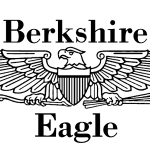
Ten months after reducing the number of days it appears in print, The Berkshire Eagle is upgrading its printing capabilities. According to a message from Eagle president Fred Rutberg, the paper, based in Pittsfield, Massachusetts, is in the process of acquiring a 9-year-old Goss Magnum press that will make it possible to print in color on every page. The move is aimed at making the paper more appealing to both readers and advertisers, Rutberg says.
Last October the Eagle moved from a seven- to a five-day print schedule, dropping its Sunday and Monday editions and transforming the Saturday paper into an all-weekend edition. The Eagle’s satellite papers in Brattleboro and Bennington, Vermont, ended a day of print as well.
Become a member of Media Nation for just $5 a month.
At the time, Rutberg described the move as an acceleration of plans that were already in the works, explaining that the COVID pandemic had hit advertising hard. The Eagle ran a long story describing print cutbacks at other papers around the country, presumably to show readers that the lesser emphasis on print shouldn’t be taken as a sign that the paper was on the skids. Indeed, executive editor Kevin Moran told New England Public Media that the move would not result in any layoffs.
“COVID-19 really put a chilling effect on some of our advertising revenue,” Moran was quoted as saying. “But on the second hand, ever since the middle of March, we’ve seen a really big increase in our digital-only subscriptions.”
The Berkshire Eagle has been one of the good-news stories amid the local-news crisis of recent years. Once regarded as one of the best small dailies in the country, the paper was laid low under the ownership of the hedge fund Alden Global Capital. In 2016, Rutberg led a group of investors who bought the Eagle back from Alden and began the slow process of rebuilding what the bean-counters had torn down. The Associated Press put it this way in a 2019 feature:
It’s easy to get carried away — The Eagle is still struggling, and its survival is far from assured. Readers are trickling, not flocking, back.
But if it does fail, it won’t be for lack of effort. The Eagle’s owners, editors and staff are waging an all-out campaign to revitalize local journalism in the Berkshires and southern Vermont.
Rutberg’s announcement that he’s buying a new press is surely good news, but it shouldn’t be taken as a sign that the Eagle favors print over digital. Click on the subscribe button and it’s all about digital, with the paper offering various deals for digital-only and digital-plus-print subscriptions. The reality is that even as papers (can’t we come up with a better name?) and readers continue to shift to online, print remains more lucrative. The value of print advertising has simply held up better than digital, which was driven into the floor by Craigslist, Google and Facebook.
In his message to readers, Rutberg said:
When I announced last year that we were reducing The Eagle’s print editions from seven to five days a week, I also told you that we had adopted a long-term strategy of Being Digital.
Judging from the mail I received, many of you surmised that we had decided to abandon print, and that the announced reduction in print frequency was the beginning of the end of The Berkshire Eagle print edition. That was not the case last year, and it is not the case now. I hope that the substantial investment we are making in print, as evidenced by our purchase of the Magnum printing press, will put those thoughts to bed.
The Eagle isn’t out of the woods. But in the five years that the Rutberg group has owned it, it’s provided far more quality journalism to its communities than would have been the case under Alden. And it has a fighting chance of becoming a profitable, sustainable business.
There is no substitute for committed local ownership.
